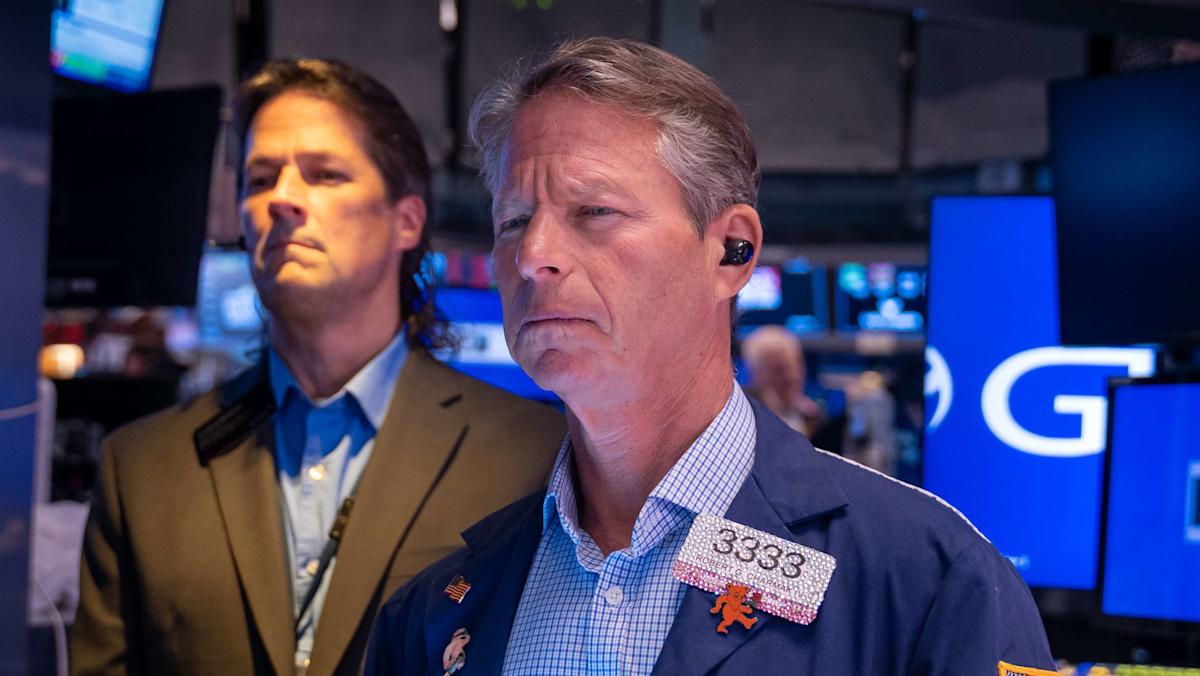00:00 Ally
pretty positive. We have stocks trading at record highs, but it seems like the general sentiment on Wall Street is that we're trying to decide if we're bullish or bearish. We did have that disappointing jobs report, those revisions really spooked investors. We will see those estimates on annual payrolls. Those revisions are set to maybe point to another loss of nearly 900,000 jobs. So that could set us up for yet another disappointment.
00:36 Ally
And on Wall Street, there is a clear divide between those that are super bullish on the outlook and those that are maybe a bit more cautious. Ed Yardeni is saying that he doesn't think the Fed should be cutting at this point that interest rates are fine where they're at considering GDP growth is strong at this point. He thinks that there's a risk of a market meltup if the Fed starts to cut in this environment, and also the risk of cutting in an environment where inflation remains sticky.
01:13 Ally
And as Jen was just laying out, we could continue to see hotter inflation down the line. But then you have others on Wall Street like Goldman Sachs uh strategist David Costin, who thinks that rate cuts will be bullish for this stock market and that it will extend the rally from just those mega cap tech names into some of those undervalued parts of the market like small caps, which have really struggled under the weight of those big tech players since this bull market rally began just around two years ago.
01:50 Ally
But even within the AI trade, we are seeing a bit of wobbly uh trading there. Invidia, Microsoft, they haven't made new record highs in weeks. We're seeing a lot of money flow into maybe some more uh of the laggards, some non-AI plays like Apple, for example. So that just points to some of the uncertainty within this environment and how rate cuts doesn't automatically mean stocks are going to rally from here. So just a few things that I'm tracking this morning.
02:32 Ally
as we continue to see this Wall Street commentary, as we continue to wade through this economic data and it all sets us up to what that Fed ultimately decides to do later this month.
02:49 Speaker A
And Ali, we've got a quite interesting take from Apollo Global Management on the S&P 500. They think it's too expensive. Why is that?
03:00 Ally
Yeah, too expensive because it's very top-heavy right now. That is the argument. Apollo Chief economist Torsten Slock saying that just a handful of mega cap stocks now make up more than 30% of the S&P 500. And for some perspective here, that's about three times a concentration that we saw during the .com bubble. We know bubble is a very scary word on Wall Street, but uh Torsten making the argument here that today's market is even more dependent on just a handful of those names.
03:46 Ally
The Magnificent 7 driving nearly all of the index's earnings growth, while the rest of corporate America really just lags behind, only modest growth there with the small cap names really flat in terms of earnings growth. And you're looking at hyperscalers and the Cax spend that's leading to the earnings gains. So names like Microsoft, Google, Meta, they're spending close to 20% of sales on the AI buildout.
04:31 Ally
The risk though is that if they pull back at all on that spending, we have not seen that yet in terms of what we've seen from earnings season so far, but if they do start to pull that back, the broader market could be very exposed. So that is the risk, the concentration risk that we've really been talking about throughout the course of this year. Apollo making the argument that that risk is very much present in this market, despite the fact that we have been hearing from strategists that there is a broadening out on a on a sector basis.
05:04 Ally
But in terms of individual stocks, you still have those big mega cap Mag 7 names driving a lot of the gains.













